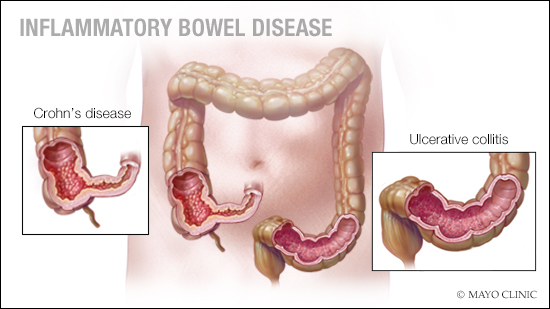
Understanding the Link between Colon Cancer and Ulcerative Colitis: What You Need to Know
Colon cancer is a serious medical condition that affects millions of people worldwide. One of the risk factors associated with an increased likelihood of developing colon cancer is ulcerative colitis. Ulcerative colitis is a chronic inflammatory bowel disease that primarily affects the colon and rectum. This article aims to explore the link between these two conditions and provide crucial information about their correlation, screening, prevention, and treatment.
Ulcerative colitis is a condition characterized by inflammation and ulcers in the inner lining of the large intestine and rectum. While the exact cause of ulcerative colitis is still unknown, it is believed to be an autoimmune disorder, in which the immune system mistakenly attacks healthy cells in the colon. The symptoms of ulcerative colitis can range from mild to severe and include abdominal pain, diarrhea, blood in stool, fatigue, and weight loss.
Though ulcerative colitis primarily affects the colon, research suggests that there is a significant association between this condition and the development of colon cancer. Studies have shown that individuals with long-standing ulcerative colitis are at a higher risk of developing colon cancer than those without the disease. It is important to note that the risk increases with the duration of ulcerative colitis and the extent of the colon involved.
The exact mechanisms through which ulcerative colitis increases the risk of colon cancer are still being actively studied. However, there are several theories that help explain this association. One theory is that chronic inflammation in the colon leads to genetic mutations and alterations in the DNA, which can eventually lead to the development of cancerous cells. Another theory proposes that the continuous regenerative process in the lining of the colon, as a response to inflammation, creates an environment conducive to the growth of cancer cells.
Due to the increased risk of colon cancer in patients with ulcerative colitis, regular screenings are highly recommended. Screening usually involves a colonoscopy, where a thin, flexible tube with a camera is inserted into the colon to examine its lining for any abnormalities. The frequency of these screenings may vary depending on the individual’s risk factors and the severity of their ulcerative colitis. Generally, screenings should begin within 8-10 years of the initial diagnosis of ulcerative colitis or after around 15 years of having the condition.
Prevention and management play crucial roles in reducing the risk of colon cancer in individuals with ulcerative colitis. One of the most effective preventive measures is the use of medications to control inflammation, such as aminosalicylates, corticosteroids, and immunosuppressants. Additionally, individuals may be advised to undergo regular colonoscopies for surveillance purposes. In some cases, surgical removal of the colon may be recommended to minimize the risk of colon cancer.
When it comes to treatment, the primary goal is to control inflammation and prevent flare-ups. Various medications, including anti-inflammatory drugs, immune system suppressors, and biologic therapies, can help manage ulcerative colitis symptoms. It is crucial for patients to work closely with their healthcare providers to develop an individualized treatment plan that suits their specific needs and goals.
Apart from medical interventions, lifestyle changes can also contribute to reducing the risk of colon cancer in individuals with ulcerative colitis. These include adopting a healthy diet rich in fruits, vegetables, and whole grains, regular exercise, avoiding smoking and excessive alcohol consumption, and managing stress levels effectively.
In conclusion, understanding the link between colon cancer and ulcerative colitis is crucial for individuals diagnosed with the latter. Ulcerative colitis significantly increases the risk of developing colon cancer, particularly in individuals with long-standing and extensive colonic involvement. Regular screenings, appropriate medications, and lifestyle modifications can help reduce this risk and contribute to better disease management. If you have ulcerative colitis, it is essential to work closely with your healthcare provider to create a comprehensive plan tailored to your individual needs.

















